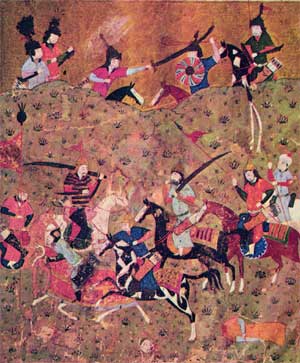This article needs additional citations for verification .(March 2021) |
| Years |
|---|
| Millennium |
| 2nd millennium |
| Centuries |
| Decades |
| Years |
| 1040 by topic |
|---|
| Leaders |
| Birth and death categories |
| Births – Deaths |
| Establishments and disestablishments categories |
| Establishments – Disestablishments |

Year 1040 ( MXL ) was a leap year starting on Tuesday of the Julian calendar.